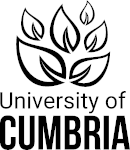
Technology and motorbikes for virus protection in race to save monkeys
In the race to save one of Africa’s rarest primates, University of Cumbria has turned to technology - and motorbikes - as Gambian ranger teams defend themselves against Covid-19.
With numbers down to as few as 2,500 globally, critically endangered Temminck’s Red Colobus (TRC) monkeys have become the focus of an ambitious three-year project, spearheaded by university researcher and vet, Dr Mic Mayhew.
Launched in March, the Communities for Red Colobus (C4RC) project followed extensive research by Dr Mayhew. He found that while populations in The Gambia were in serious decline, or had disappeared, in one remote forest area 600 were recorded in just three days.
However, the project’s success in recruiting six wildlife rangers in just two weeks saw the new team facing unforeseen challenges as the Covid-19 pandemic gripped the world.
Dr Mayhew explained: “It meant we had to act as quickly to protect them and make sure they could carry on working as safely as possible.
“Thankfully, The Gambia has very few recorded cases of coronavirus, but we have bought motorcycles and digital two-way radios so rangers don’t have to use overcrowded buses and can react quickly to reports of illegal activity in the forest.
“Africa is at a crossroads and the future for the remaining red colobus populations is far from secure. But C4RC rangers are undaunted and start every new day with the courage and commitment to succeed in their quest to turn the tide for one of the continent’s rarest primates.”
Dr Mayhew said Chris Packham’s new landmark TV series Primates could not have come at a better time to grow awareness of conservation needs.
A Gambian field trip by university conservation students was cancelled in March because of the virus, but future visits to the Sambel Kunda area, where the project is based, will be organised when current restrictions are lifted.
Meanwhile, the team is developing links to the University of The Gambia to create opportunities for joint field studies.
Dr Mayhew said: “Africa is experiencing a revolution in communications. Most problems are now just a WhatsApp call away from a solution and we are using Zoom and Skype to meet the training needs of project staff.”
As 4G rolls out across large parts of Africa, an army of young conservationists, scientists and rangers are using social media platforms to share ideas, learn new skills and mobilise to protect endangered species.
“Poverty and poor access to education are the real threats to red colobus,” explained Dr Mayhew, who is based at the university’s Ambleside campus.
“As climate change bites and crops fail, rural communities face food insecurity and are left with no choice but to clear the remaining forests for charcoal production.”
Rangers plan to roll out an education programme in schools, train local villagers as volunteers, and develop livelihood projects such as ecotourism and tree nurseries to reduce the pressure on remaining forests.
They have already set up forest patrols, started surveying TRC and are developing cashew nut nurseries to provide an income for villagers.
The project includes work with the Department of Parks and Wildlife Management to designate the forest as one of only 14 Community Protected Areas in the Gambia. It is funded by Global Wildlife Conservation, National Geographic and the Global Challenges Research Fund.
Find the project on Facebook: @C4RCproject
Ends
For interview requests, please contact Karen Barden 015395 52366, 07793 083106. Video footage is available.
Pictures show:
Endangered Temminck’s Red Colobus (TRC) monkeys in The Gambia and Communities for Red Colobus (C4RC) project workers on motorbike patrol
